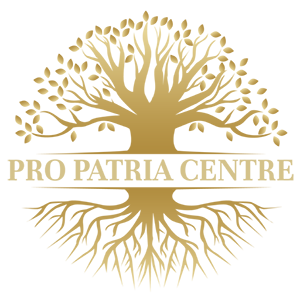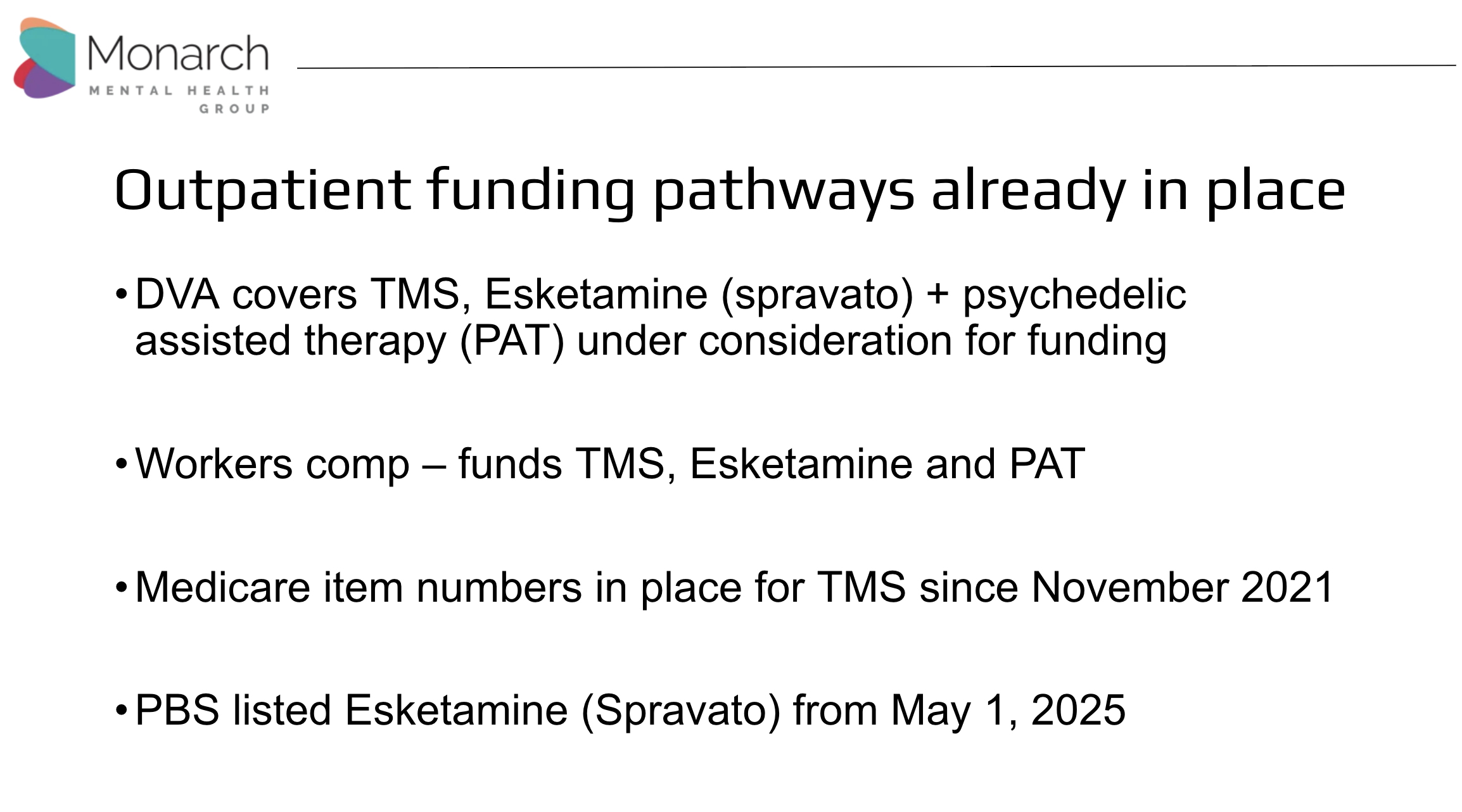Twelve Months On: Next-Step Mental Health Treatments at Pro Patria Centre
It has been a transformative year since the Monarch Mental Health Group opened its doors here at the Pro Patria Centre in Wagga Wagga. As we reflect on the 12 Months On Conference, our team at Pro Patria is proud to share how innovative mental health treatments are providing new hope to veterans, first responders, and the wider Riverina community.
Dr Ted Cassidy, co-founder of Monarch, explained, “It’s a real pleasure to be part of the community in Wagga, and having watched [Pro Patria] grow from an idea and the Defence Shed to what it is now. We’re very proud at Monarch Mental Health to have our clinic in the Pro Patria Centre and to be able to treat the people and veterans of Wagga and offer them some new hope with treatments.”
The Next-Step Treatment Revolution
Monarch’s mission is built on a simple observation: standard treatments don’t work for everyone. As Dr Cassidy shared with conference delegates, “A lot of the treatments that people conventionally use don’t work. You see your GP, you try a number of antidepressants, you see a psychologist… two out of three people get a response. But about one out of three, those things don’t work. In the past, you just accumulated more and more people within your practice who weren’t responding, and you just kept on trying the next new medication that came out, and by and large, it wasn’t very effective.”
Driven by this challenge, Monarch has dedicated itself to delivering ‘next step treatments’ for those who need something beyond the standard approach. “What do we do with the other third? What’s going to be available? That led me down a lifelong journey of always looking at what the next step is, what offers people hope,” Dr Cassidy said.
Three Promising Treatments
In 2025, Monarch has focused on three breakthrough treatments: Transcranial Magnetic Stimulation (TMS), esketamine nasal spray, and psychedelic-assisted therapy. All are delivered on an outpatient basis, allowing people to maintain their routines and remain connected to their communities.
Transcranial Magnetic Stimulation (TMS)
TMS is now a mainstay at Pro Patria. As Dr Cassidy explained, “TMS stands for transcranial magnetic stimulation. It was the first of the non-medication treatments… In simple terms, the way it works is it switches on the mood pathways—the positive areas in the brain—directly, without using chemicals. TMS works for some of those people who don’t respond to standard medication, because it doesn’t use that chemical activation system.” He added, “Magnets are painless, and magnetic fields are very short range. The biggest advantage of TMS is it has almost no side effects.”
In practical terms, “A single treatment can take 15 minutes and it doesn’t interfere with anything else. You can literally drive in, have the treatment, drive off, and continue your day,” Dr Cassidy said. For rural Australians, there’s even an accelerated protocol: “You can now come in, have a two-hour appointment on six separate days over a bit over a week, and you’ve basically done your acute course.”
Esketamine Nasal Spray
For those who don’t respond to TMS, Monarch offers esketamine. “The advantage is that not everyone responds to every treatment, so you need to have something to treat the residual group. S ketamine is a great treatment because it also has a similar response rate—about two thirds of people will respond. And unlike TMS, it’s not a direct activation; it is a chemical activation, but it’s not using the typical serotonin system,” Dr Cassidy explained.
Esketamine is now more widely accessible due to PBS listing. “From May this year, pretty well anyone in the community can access this treatment at a reasonably low cost,” he noted. The main challenge is the need for supervision and the inability to drive for several hours after treatment.
Psychedelic-Assisted Therapy
Perhaps the most headline-grabbing innovation is psychedelic-assisted therapy. Dr Cassidy shared, “Australia was the first country in the world that made MDMA therapy and psilocybin therapy available for clinical use. In the PTSD world, I think MDMA is really going to change the paradigm completely. We’re seeing people getting essentially curative responses using MDMA therapy. It’s a very impressive treatment.”
However, psychedelic therapy is resource-intensive. “In every treatment, there’s about 100 hours of therapist time per patient. The cost of these treatments ranges from $20,000 at the very low end, up to $35,000 or $40,000 at the high end, with 80% plus of that being personnel costs.”
Looking Forward
Funding and workforce remain challenges, but the future is bright. “We’re very proud to be co-located in Pro Patria and continue to increase the number of services we offer here,” Dr Cassidy concluded.
At Pro Patria, we remain committed to connecting our community with the best in mental health care. If you’re struggling with depression, anxiety, or PTSD and standard treatments haven’t worked, reach out, there are now more options than ever before.
Pro Patria Centre 12 Months On Conference Team


